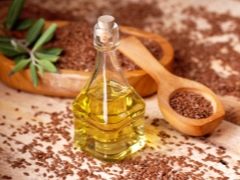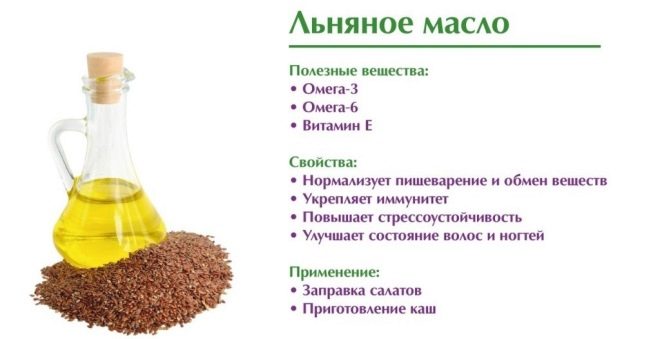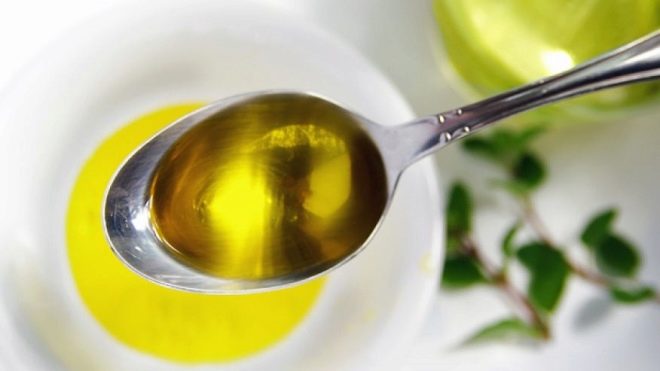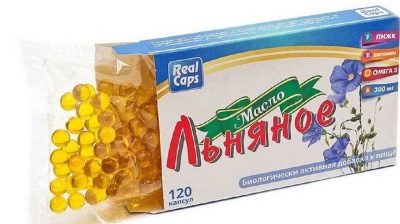Linseed oil for children
The use of flaxseed oil for adults is beyond doubt and has been confirmed by many studies. They drink it on an empty stomach, add it to different dishes, take it in the form of capsules and note a positive effect on health. Therefore, mothers are thinking about whether it is possible to offer such a product to young children, from what age it is permissible and in what way it is better to give it to the baby.
Benefit
Flaxseed oil is extracted from flaxseed and is unrefined (to obtain it using the method of pressing) and refined (mechanical processing is complemented by refining).
This product is rich in vitamin E, as well as other vitamin compounds - A, K, group B. They affect the energy and metabolic processes in the body, strengthen the walls of blood vessels, reduce the inflammatory process, stimulate defenses, support vision and blood coagulation processes.
Other properties are also known:
- Flaxseed oil acts as a source of alpha-linolenic acid, which is attributed to omega-3 fats. This allows it to be considered an alternative to fish oil, if the child cannot eat fish or special supplements for one reason or another. These fats support the nervous system and the heart muscle.
- There is also omega-6 and omega-9 unsaturated fats in flaxseed oil. They are necessary for the formation of membranes, support the structure of hair and skin, the normal state of the joints, the production of prostaglandins and other processes.
- Lignan present in flaxseed oil is important for the normal state of the vessels. This substance lowers cholesterol and reduces the risk of cardiovascular pathologies.
- The use of oil from flax seeds helps to strengthen the immune system, gives energy. This product is useful for the nervous system, helps get rid of headaches, reduce the effects of stress, it is better to focus
- Flax seed oil also helps relieve constipation. It gently envelops the walls of the stomach and intestines, reduces irritation, increases the plasticity of the feces and stimulates emptying.
If you use flaxseed oil externally, it will increase the elasticity and elasticity of the skin. For minor injuries and burns, the treatment with this herbal product will have a healing effect.
Possible harm
- Children's bodies can respond to flaxseed oil with a rash and other allergy symptoms. In this case, such a product is excluded from the diet for some time. If during repeated testing the signs of intolerance appeared again, you will have to replace it with another vegetable oil.
- When used in excess, the oil from flax will greatly dilute the stools and provoke diarrhea, as well as unduly stimulate the contraction of the gallbladder, which can cause discomfort and pain. For this reason, the dosage recommended by age should not be disturbed. In addition, due to the properties of thinning the blood, overdose can cause bleeding.
- This product is undesirable in the diet of children with pathologies of the biliary tract or pancreas. With such diseases may deterioration. In addition, fats are limited if tests have shown an increased amount of lipids in the blood.
- The risk of harmful effects of flaxseed oil increases with its heat treatment. For this reason, it is forbidden to heat it, unlike other vegetable oils.
Can I give a baby?
Opinions pediatricians regarding the age at which it is safe to give flaxseed oil to children differ. Some doctors believe that such a product is permissible to enter in the supplement as well as other vegetable oils, but at the same time closely monitor the reaction of the toddler. If you adhere to this approach, then babies are given butter when fed from 7 months, babies on artificial feeding - from 5 months of age.
Other doctors are confident that The use of flaxseed oil at such an early age is not justified. They recommend limiting the olive and sunflower oils that are safer for children up to the year, and postpone familiarity with linseed and other species to a later period.
However, many doctors believe that it is possible to give oil from flax seeds already from 1 year, and some experts advise to wait until the age of three, when the child's digestive system is fully mature.
The use of linseed oil over the age of 3 years is indicated for:
- frequent colds;
- developmental delays;
- capricious behavior;
- poor appetite;
- frequent constipation;
- rapid fatigue;
- increased nervousness and excitability;
- great physical exertion;
- reduced vision.
This product is especially useful in the fall and winter, as it helps to reduce the risk of colds and increase the defenses of the child’s body. Many doctors advise doing courses in the spring. In this case, the reception will increase the tone and strengthen the body after the cold.
If the mother still wants to give flaxseed oil to the baby, it is first important to consult with the pediatrician. The doctor will be convinced of the absence of contraindications and prompt the correct dosage.
- up to a year most often give one drop for each month of life;
- in 1-3 years - half a teaspoon;
- 3-7 years old - a full teaspoon;
- from the age of seven, butter can be consumed in the amount of one dessert spoon per reception.
The duration of continuous reception is usually 1-2 months, after which it is recommended to take a short break.
Mode of application
Many kids do not like the taste and texture of flaxseed oil, so giving it on an empty stomach from a spoon is rarely obtained. Usually maslitse is added to non-hot dishes, for example, in vegetable puree, fresh vegetable salad, soup, warm porridge, carrot juice, cottage cheese and so on.
For infants, it is permissible to drip the dosage prescribed by a doctor into expressed breast milk. Older children can offer bread dipped in butter.
In addition to ingestion, flaxseed oil can be used externally. It is applied to the skin with dryness, minor injuries, irritation areas, and is also used for massage, including for treating the delicate skin of newborns.
During such procedures, vitamin substances and fatty acids are well absorbed into the skin, soothe it with dermatitis and other problems, eliminate flaking and improve local blood flow.
To protect against viral diseases, oil can also be dripped into your nose before you leave home during the epidemic season.
Purchase and storage
Choosing flaxseed oil for a child, pay attention to its appearance. The normal color is yellow, but it can be both dark and with a greenish tinge. In addition, the liquid must be clear.
Before giving such a product to your baby, be sure to check its taste. If the oil is fresh, it will not be bitter and will not leave an unpleasant aftertaste.
Flax seed oil differs from other vegetable oils with a shorter shelf life. It deteriorates quickly, so it should be kept tightly closed in a dark container and stand in a place hidden from the sun.
- Uncorked bottle can be kept at room temperature for no longer than 2 weeks.
- If you put it in the fridge, it will slightly extend the shelf life, but it is best to use it for 1 month.
In order to keep the oil in contact with air as little as possible, you need to quickly close the lid immediately after you measure the desired dose.
In capsules
This version of flaxseed oil is quite in demand, because in it the product is enclosed in a tasteless gelatin shell, so it is more pleasant to drink it. The capsules themselves are usually round and small in size, so it is easy to swallow them.
Additive offered by several manufacturers. On the packaging, it is often noted that children can be given from the age of 14, but many doctors allow the use of such a drug from the age of five. A single dosage depends on the amount of oil in one capsule, which is 250, 300, 500 and 1000 mg. It can be from 2 to 4 pieces at a time.
Reviews
On the use of oil from flaxseeds respond differently. Some mothers note that the child categorically refused to drink it or reacted to the specific taste by enhancing the gag reflex.
Other women share that they have found an approach to their offspring and have seen the positive effect of linseed oil on health. They noted an improvement in digestion and normalization of the stool, as well as an increase in the activity and vigor of the child in daily activities.
About the benefits of linseed oil: how to apply, select and store, see the next video.























